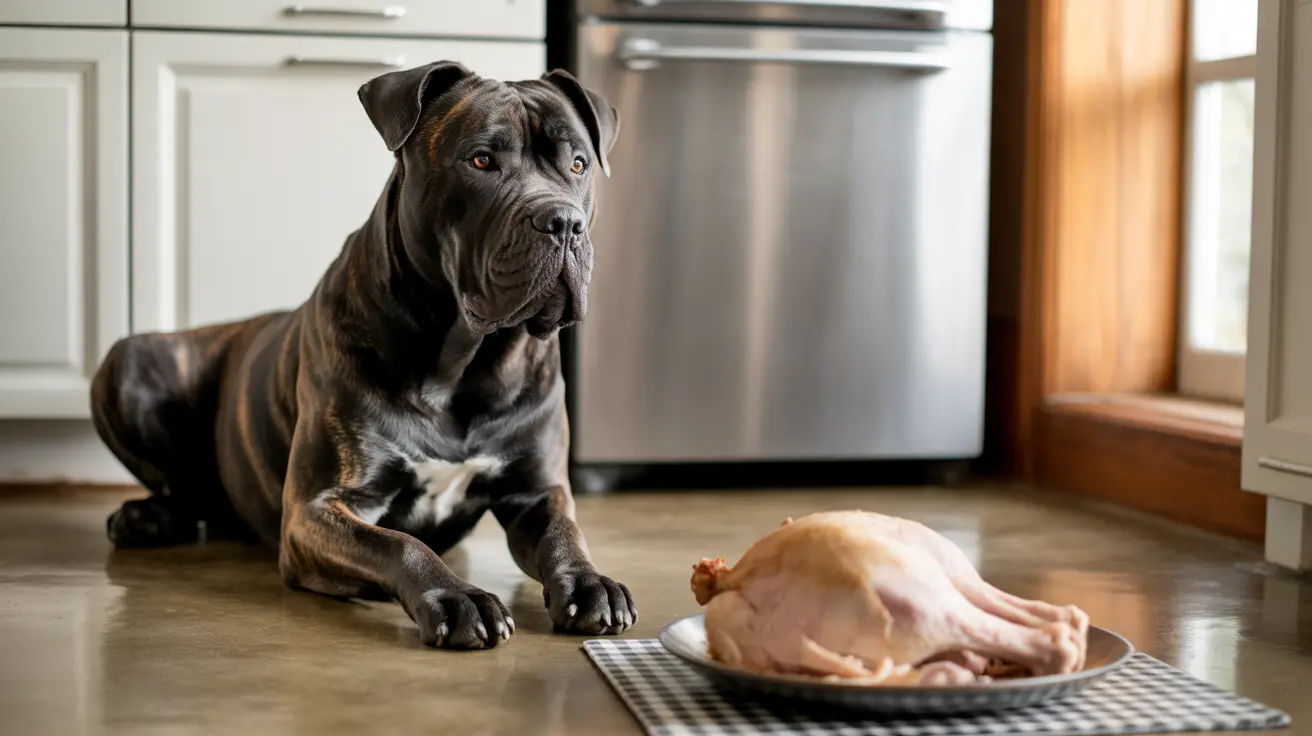The Benefits of Turkey for Dogs
Turkey offers several nutritional advantages for dogs when served properly. This lean meat is packed with high-quality protein that supports muscle development and maintenance. It's also rich in essential nutrients that contribute to your dog's overall health:
- B vitamins for energy metabolism and nervous system function
- Zinc and selenium for immune system support
- Phosphorus for strong bones and teeth
- Essential amino acids for overall health
- Low-fat content (when skinless) for weight management
Safe Preparation Methods
The key to safely feeding turkey to your dog lies in proper preparation. Follow these essential guidelines:
Cooking Instructions
- Remove all skin and visible fat
- Cook thoroughly without seasonings
- Avoid using oils or butter
- Let cool completely before serving
What to Avoid
- No bones of any kind
- No skin or fatty portions
- No seasonings, especially garlic and onions
- No turkey drippings or gravy
Portion Sizes and Frequency
When introducing turkey to your dog's diet, start with small portions to monitor their reaction. A general guideline for serving sizes:
- Small dogs (under 20 lbs): 1-2 small pieces
- Medium dogs (20-50 lbs): 2-3 medium pieces
- Large dogs (over 50 lbs): 3-4 larger pieces
Remember that turkey should be an occasional treat or supplement, not a meal replacement, unless specifically recommended by your veterinarian.
Signs of Turkey Sensitivity
Watch for these potential signs of sensitivity or adverse reactions:
- Digestive upset
- Vomiting or diarrhea
- Lethargy
- Excessive thirst
- Allergic reactions (rare)
Special Considerations for Holiday Turkey
During holidays, be especially careful about sharing turkey with your dog. Holiday preparations often include ingredients that can be harmful to pets. Never give your dog:
- Turkey prepared with herbs and spices
- Stuffing or other side dishes
- Turkey skin or drippings
- Leftover bones
Frequently Asked Questions
Can dogs safely eat turkey meat, and how should it be prepared?
Yes, dogs can safely eat turkey meat when it's plain, fully cooked, and free from seasonings, skin, and bones. The meat should be cut into appropriate portions and served at room temperature.
Why should I avoid giving my dog turkey bones or skin?
Turkey bones can splinter and cause choking, internal injuries, or digestive blockages. The skin is high in fat and can lead to pancreatitis, a serious inflammatory condition of the pancreas.
Is it safe to feed my dog processed or deli turkey meat?
Processed and deli turkey meats are not recommended for dogs due to their high sodium content and added preservatives. These products can lead to excessive thirst, sodium ion poisoning, or other health issues.
Can turkey cause allergic reactions or digestive issues in dogs?
While rare, some dogs may be allergic to turkey or experience digestive issues. Always introduce new foods gradually and watch for signs of adverse reactions such as vomiting, diarrhea, or skin irritation.
How much turkey can I give my dog, and should I consult a vet first?
The amount of turkey depends on your dog's size, but it's best to start with small portions. Always consult your veterinarian before making significant changes to your dog's diet, especially if they have existing health conditions.
Remember, while turkey can be a healthy addition to your dog's diet, it should always be prepared properly and given in moderation. When in doubt, consult with your veterinarian about the best ways to incorporate turkey into your pet's meal plan.






